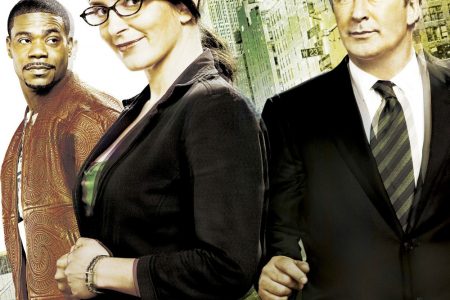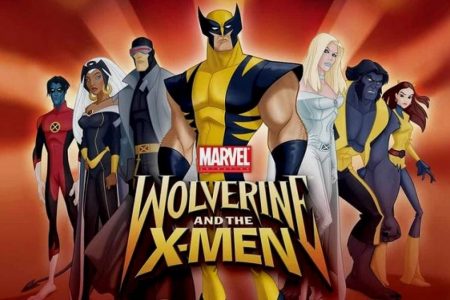Lost
Another instance of reading about it on blogs before it came to these shores, Lost was a big deal when it arrived on Channel 4, and it lived up to the hype. An intriguing and interesting setting, characters that had layers and you cared about, and a mystery to keep you coming back. The build-up to the end of season 1 was genuinely riveting, and the series could be enjoyed at the level of simply watching it on a weekly basis, or by rewatching/trawling the internet for clues that are placed throughout to make it an even more impressively made series.
The anticipation for season 2 was high. What would happen? What were all the secrets? What was the hatch? Where’s Walter? However, watching the second series became an endurance event, especially compared to the first series. Presumably due to its own success, the show introduces new characters and new mysteries in order to keep up the momentum for a continuing series, that pushes aside some of the characters in which you have invested emotional connection and gives the show a sprawling feel that disperses focus on the genuine mystery that once was the core. Some episodes were so slow in their depiction of an aspect of a character that it wasn’t worth the effort to get to the reveal at the end. The show felt too bloated and dull, and I ended up not really caring what happened. That was such a shame for a show that had bucked the trend of stupid, vapid reality shows and had returned to intelligent, well-written drama. I wasn’t disappointed that it was snapped up by Sky One so that I couldn’t see it …
Entourage
I do like a behind-the-scenes look at the world of entertainment, so an entire series about the notion suits me just fine (even if I have to watch it on ITV2 – why isn’t it on the main channel?). That it is based on the real-life adventures of Mark Walhberg gives it more of an edge of reality.
The first series introduces us to Vincent Chase and his entourage – Eric or E, his manager and life-long friend who used to run an Italian restaurant; Johnny or Drama, his brother who is also an actor who had some success on a TV show, but is now hanging on his brother’s coattails; and Turtle (real name as yet unrevealed), another life-long friend who drives the car and does other odd jobs. The show follows their (mostly) non-adventures as Vinnie decides to make an independent film with a Vincent Gallo-alike director, while having lots of sex with women, Drama doesn’t get jobs through his arrogance, Turtle tries to get sex by being part of Vincent’s group, and E tries to be a manager in a world of sharks.
Ostensibly, the series doesn’t really focus on Vincent, but on E, as the character with his head screwed on and as a route for the audience to see the venality and cut-throat quality of Hollywood. This doesn’t make for particularly interesting viewing, which is where Jeremy Piven comes in. He plays Vincent’s agent Ari Gold, based on Wahlberg’s agent, and is the star of the show. He plays the character exactly as horrible as an agent is, but with a spark of humanity deep within that isn’t cloying and sentimental. It’s quite impressive and he deserves all the accolades he had been given.
The short first series has the fun moments of real-life cameos and in-jokes but doesn’t spark into life the way the second series does. Ari gets a character arc and the story of the Aquaman film is very funny (who knew James Cameron was so hilarious?). It does suffer from comparisons to Sex and The City but, like that programme, it is about the bond between the small group that keeps you. I don’t know if they don’t make Vincent more of an interesting character because they don’t want to offend executive producer Wahlberg (it sometimes seems like it’s bragging about how much pussy he got in his early Hollywood days) but it doesn’t really matter when Jeremy Piven is on the screen.
House
House is watchable just for Hugh Laurie. Each episode is more or less the same: ill patient, treat patient, patient get worse, treat patient, patient get worse, House’s moment of revelation, patient cured. Nothing wrong with a formula; the fun is in the treatment. Sherlock Holmes (the role model for Gregory House) was the same formula, but it didn’t stop him from becoming one of the most famous fictional characters in history.
As a long-time fan of Hugh Laurie, I think it is wonderful to seeing him doing so well and winning all those awards. He is great as House, being smart, grouchy and funny, but also not afraid to be really unpleasant – the latter half of the second series saw the character just being quite nasty to other human beings – but able to show the humanity within. And to think that I used to watch him on The Young Ones/Saturday Live/A Bit of Fry & Laurie …
(An aside: comparisons between Stephen Fry & Hugh Laurie and Peter Cook & Dudley Moore? Fry/Cook wrote successful theatre shows at young ages. Fry/Cook seen as the more cerebral of the pair. Laurie/Moore were the cute, cuddly part of the partnership. Laurie/Moore both play/write music. Laurie/Moore have success in the US. I believe that Fy & Laurie are still friends, so let’s hope they don’t have the Cook/Moore split that stopped Cook from producing so much in the latter half of his career.)
It’s funny to see the success of House duplicated almost exactly in Shark. James Woods, who is the only reason to watch the show with his scenery-chewing performance, plays a brilliant lawyer who doesn’t try to be liked, and even has a sexy female boss (Jeri Ryan), even though Lisa Edelstein is far more enjoyable to watch in her version of that role. Woods is not as likeable a person as Laurie, but you can’t help but watch him, and he makes the most ridiculous dialogue seem plausible, and I’m glad for his success, even though I won’t be watching another episode.
House is a programme I enjoy watching when I see it, but I don’t go out of my way to catch it, and don’t need to watch the episodes again. However, there isn’t much on that does the same to that quality, so I’ll take what I can get.




